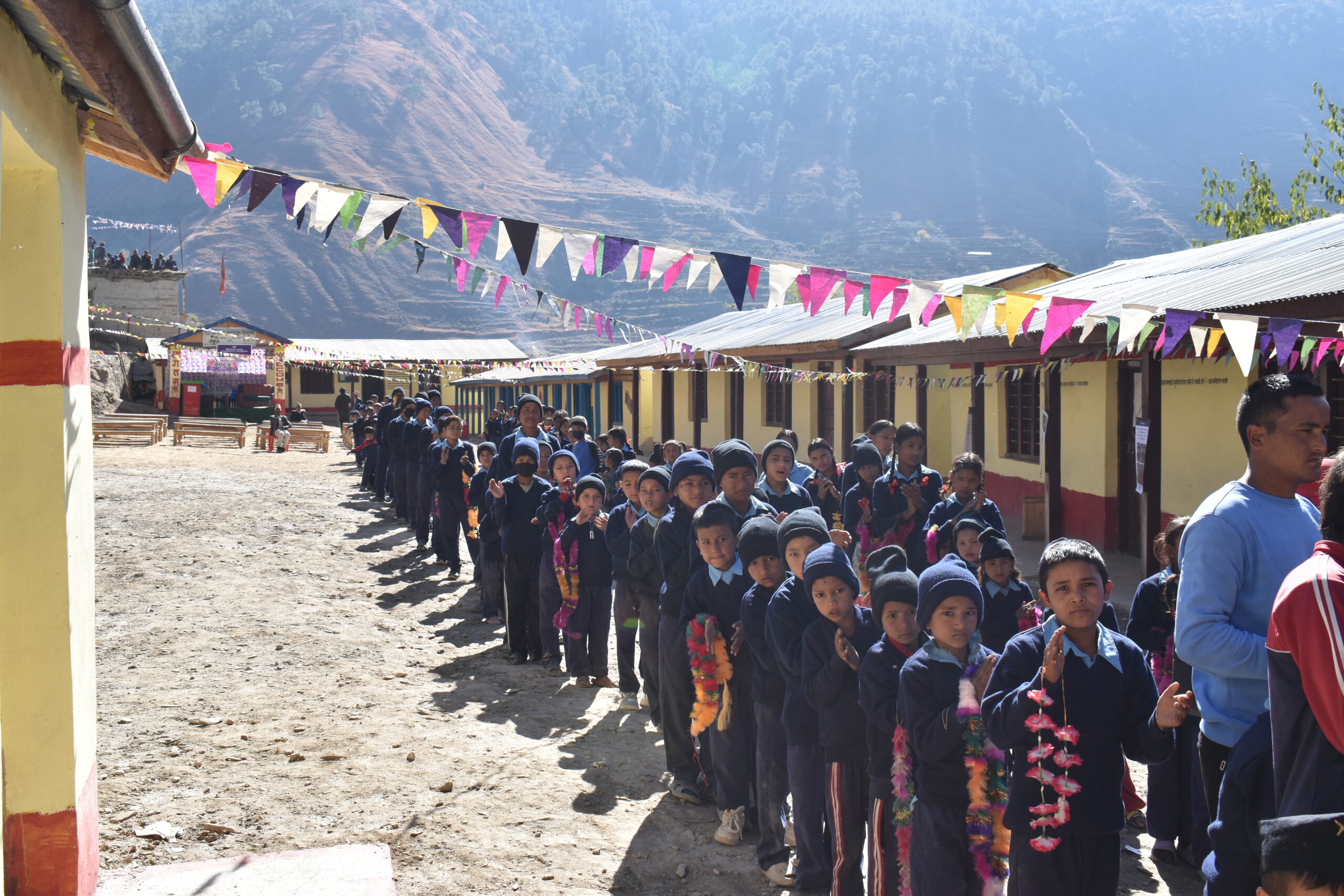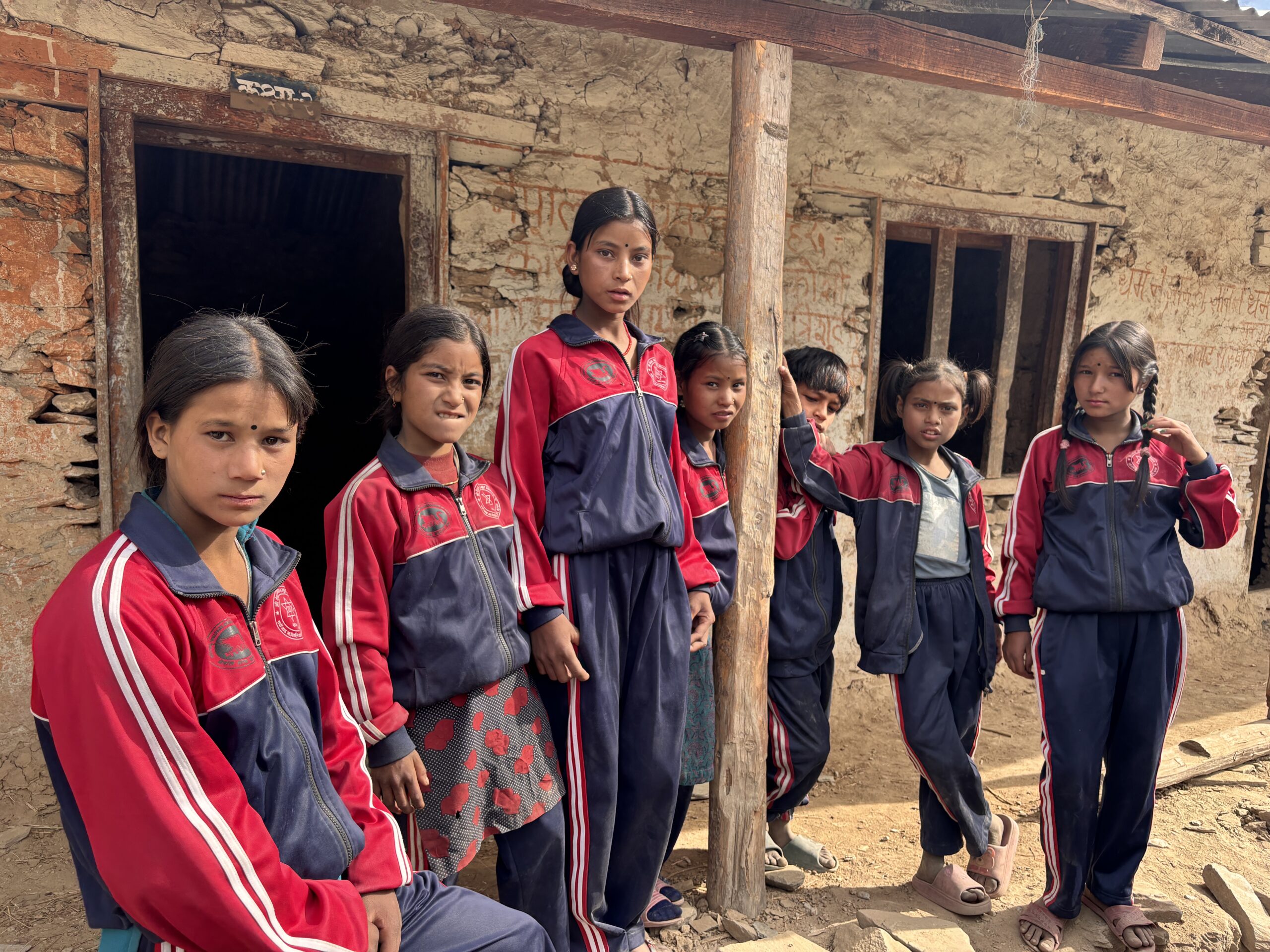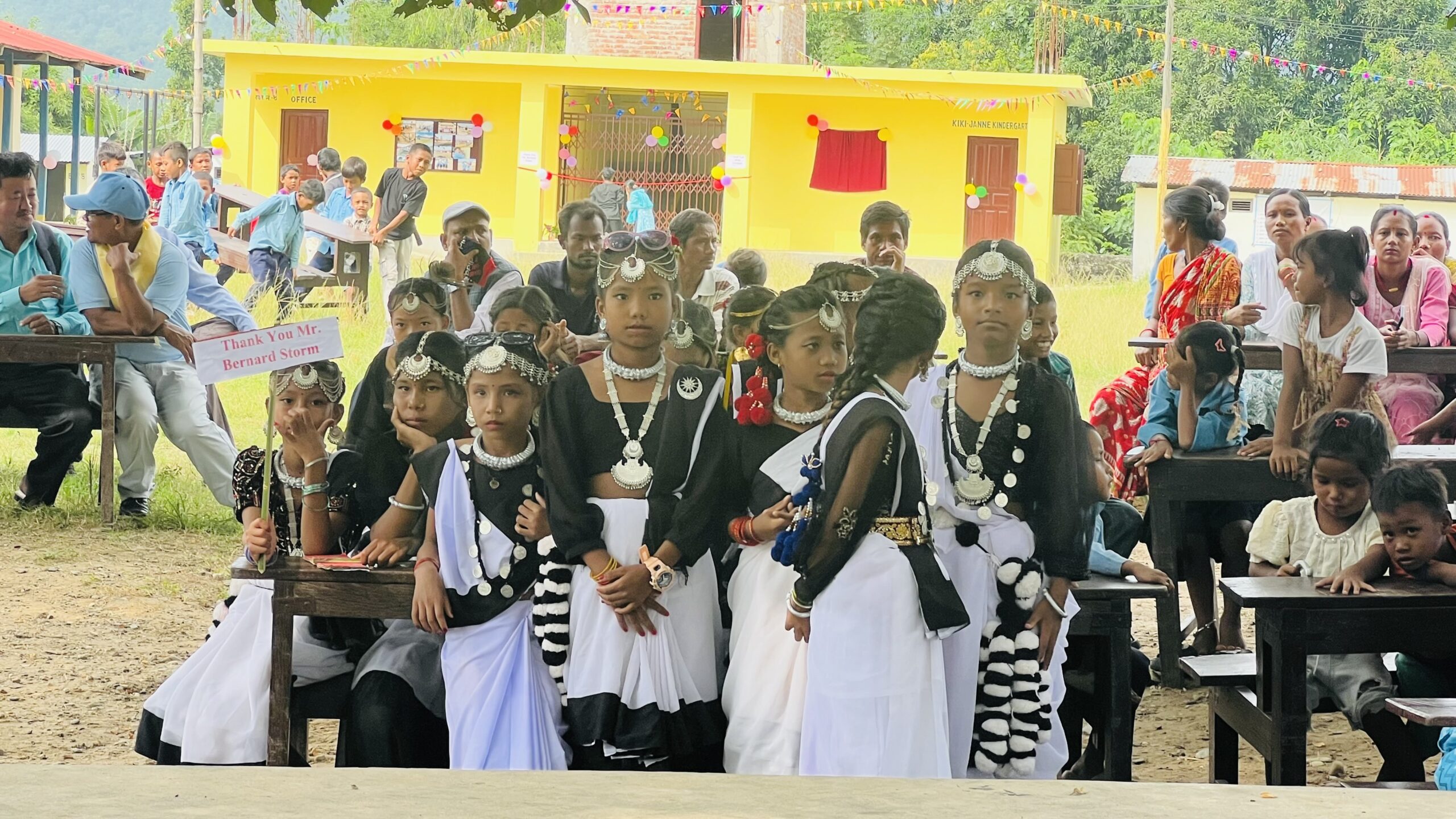The development sector has me wanting to stay
7/9/2023, Kathmandu – A vivid memory of one of my job assignments in 2015 is of an enthusiastic 20-something year old with a black bag equipped with all the storytelling tools on her back and a heart racing to make an impact. I was back in the Parbat district-a place I had bid goodbye to ten years ago, for a work project. My sheer gusto of coming back to the same place, this time with hopes of helping make an impact was soon put off by a distant uncle who commented on the futileness of me returning to work for the village instead of going abroad in pursuit of a what he called “good” future. His remark is still etched very strongly in my memory.
In spite of his remarks profoundly affecting me, I continued to work in my home district, where I had grown up and made my small contribution to its development. Over the years, the fact that I have been able to help the people there by lobbying with the organization I am working with makes me happy. Together, so far, we have been able to rebuild three schools that were damaged by the Nepal Earthquake 2015 creating something more child friendly. Furthermore, scholarship program to support needy students have been launched. Likewise, programs such as early childhood education and women empowerment through livelihoods support and humanitarian aid are now in place in Parbat district. My heart swells with pride when I think of a small part, I was able to play in all this, especially in expanding development activities in Parbat.
I have been in the development sector for about eight years now and I wouldn’t trade these years for anything. Besides having a career with purpose, these years in the non-profit sector have filled me with immense hope, fueled my leadership skills and empowered me in the process. Here are some reasons why the development sector has my heart.
Reaching the unreached
My job has given me the opportunity to reach out to many unreached communities in various districts of Nepal – Humla, Mugu, Sindhupalchowk, Nuwakot, to name a few. Visits to these places have allowed me to learn about the lifestyles, culture, and social values of some of the most backward communities in our country – bringing a shift in my perspective. It has also opened doors to access the risks, challenges and vulnerability of such places and people and in the process understand what we can do to help mitigate some of these challenges. And through it all, we have been able to build some amazing relationships with the beneficiaries, and empathetically, develop love and respect for people and, the places they come from.
Small is beautiful
Working with a small team of 8-15 members means there is more than just one responsibility you got to take care of! Your work is not only limited to increasing your organizational visibility, keeping donor relations through newsletters, or carrying out timely communications. You are assigned with multiple administrative work; you have volunteers to coordinate and work with along with several other project management responsibilities. While this may sound like a lot to juggle with, at the end of the day, you have a comprehensive knowledge of the development sector, and you inch closer towards becoming a well-rounded development professional yourself. After all, jack of all trades is what sells these days.
Understanding the nuances of programmatic approach
Non-profit organizations work in several thematic areas such as education and child development, maternal and child health, and livelihoods with cross-cutting issues like Gender Equality Social Inclusion, Eco-tourism, and Disaster Risk Reduction that bring meaningful changes to the lives of needy people and communities. A programmatic approach when working in any of these areas helps identify and implement life-changing interventions based on a rights-based approach. When working with a small team, you have the opportunity to learn and engage in every project right from the beginning until the handover and its impact learning stages. In the process, you become familiar with the theory of change to the theory of action including strategies, and sustainability of the project. And the joy of witnessing a project from its infant stage to its fruition is very fulfilling and rewarding.
The board comes onboard
When you have the right agenda with the right end goal in mind, you can be rest assured to have full support from your board members. If you are convinced about a project, trust that the board will be too and will leave no stone unturned in supporting your purpose. This not only results in mutual trust but also increases your sense of ownership in your organization’s projects. When transparency is maintained – where documentation, reporting and presentations are shared and discussed – and decisions are made together as a team, you feel one with the management and the team – you feel you are being heard, you know that in this job, you matter!
Relations are built – the government, stakeholders and more
A lot of our work and its execution depend on local government and project stakeholders. This makes you realize how small you truly are in the grand scheme of things. Working with several parties requires effective coordination and, also creates room to develop working relations with everyone involved in the project. If done well, this results in smooth implementation, execution, and strategic expansion of the project in partnership with the local government.
You witness many stories of change
To witness how goat raising in the Himalayas has contributed to better livelihood and how encouraging pregnant women to visit birthing centers results in a safe delivery, or how a sponsored child transformed his/ her academic journey into a radically better future is awe-inspiring to say the least. When you see change happen no matter the scale – you feel a sense of gratification knowing you made a little contribution that has helped tell that tale of change.
Helps find in the leader in you
My work has instilled in me – confidence, resilience, and it has made me more accountable to my job and purpose. Moreover, it has made me learn and take lead. Today, I have come to a point where I am comfortable working even in the most uncomfortable circumstances. From working in various relief programs to reconstructing school and health facilities during the aftermath of the earthquake in 2015, from documenting the COVID-19 pandemic responses and engaging in several life-changing interventions like sponsoring needy children to helping empower women – my work in the development sector has most certainly enabled me to grow as a leader.
It is true that non-profits today are receiving more attention for their work than they had a few years ago, and talent is sought for positions such as strategy, communications, program leadership, monitoring and evaluation, and human resource management. Therefore, anyone with innovative and social entrepreneurship ideas could join the field. And while that is encouraging, low income and benefits and minimal working resources are still prevalent stumbling blocks in the sector. However, the fact that I am able to make even a slight difference – one life at a time – gives me a sense of purpose and makes me want to continue treading on this path. I am grateful to the organization I’m involved with and its incredible mission in helping people help themselves and helping me find my purpose. So, development sector, it might not be wrong to say that I am here to stay!
(Mrs. Prekshya Lamichhane is working in SWAN as Communications Manager for the past nine years.)


